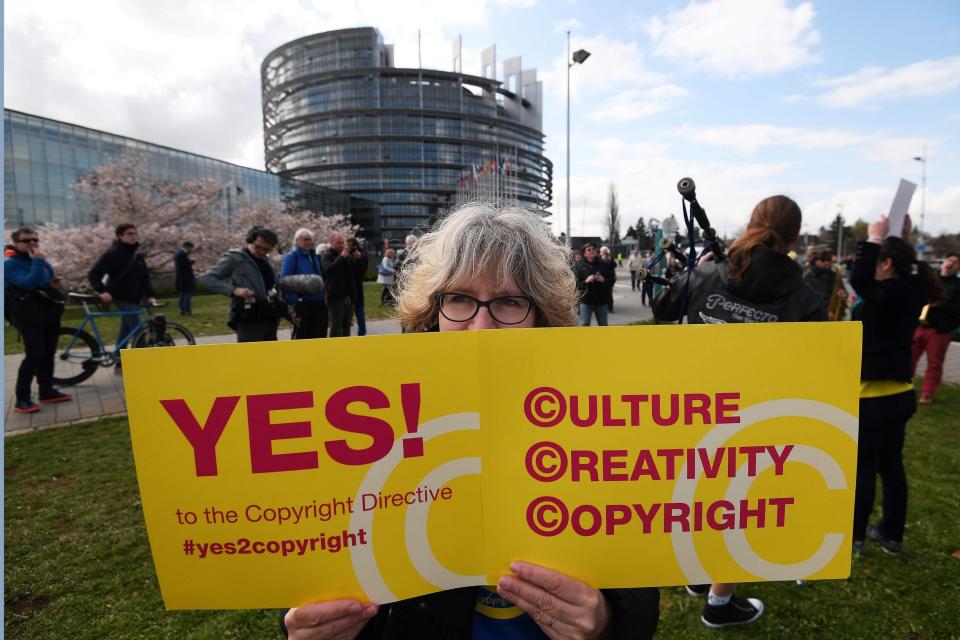What is article 13? The controversial changes to internet copyright laws passed by EU
Tech companies including Google and Wikipedia have lashed out after sweeping changes to Europe’s copyright laws were passed in a landmark ruling.
The controversial Copyright Directive will force such companies to pay media outlets and artists for using their content in Europe. It is not clear what the change will mean for the UK in the face of Brexit uncertainty.
The legislation has been hotly debated for years, with the EU seeking to re-write its two decade-old copyright laws.
It is part of a bid to protect Europe's cultural heritage by ensuring publishers, broadcasters and artists receive fair compensation from big online companies.
But parts of the bill, in particular its Article 13 provision, have proved hugely contentious.

Article 13 will force tight restrictions on how content is uploaded to the internet - even impacting how memes and GIFs are shared.
Google immediately hit out at the ruling on Tuesday, after it was passed by MEPs by a margin of 348 votes to 274.
It said that while the laws had improved, they will still lead to “legal uncertainty” and “harm Europe’s creative and digital economies”.
Meanwhile, Wikipedia founder Jimmy Wales wrote online: "You, the internet user, have lost a huge battle today.
"The free and open internet is being quickly handed over to corporate giants at the expense of ordinary people.
"This is not about helping artists, it is about empowering monopolistic practices."
But it was welcomed by music bodies such as the Institute For Contemporary Music Performance, whose director general John Phelan said: "Four years of titanic tussling later, our work to solve the 'value gap' now begins a new stage after this vote to ensure that those who make the music make a fair return."
UK Music tweeted: "A huge thank you to all the MEPs who supported the Copyright Directive today and the fantastic work of all those who have campaigned so hard on this.”
Sir Paul McCartney and Debbie Harry had been among the most vocal supporters of the changes.
EU member states will have two years to implement the reforms.

 Yahoo News
Yahoo News 
